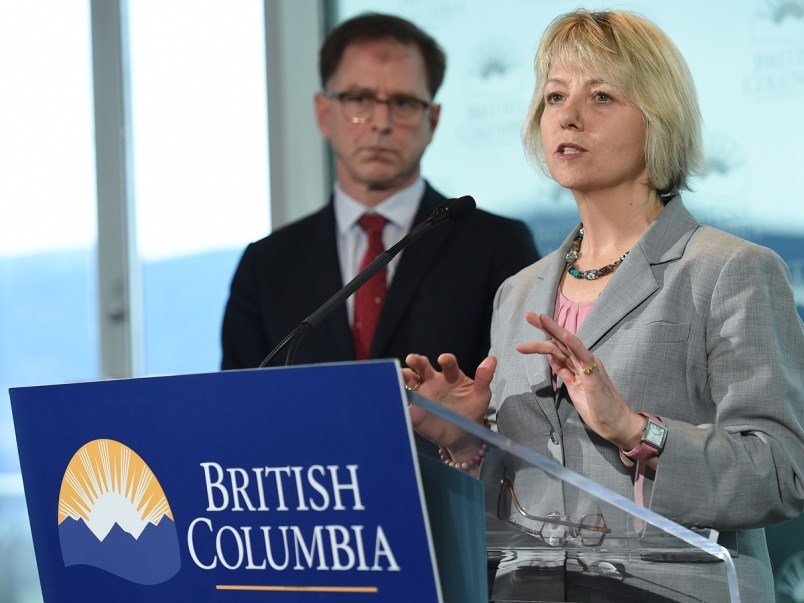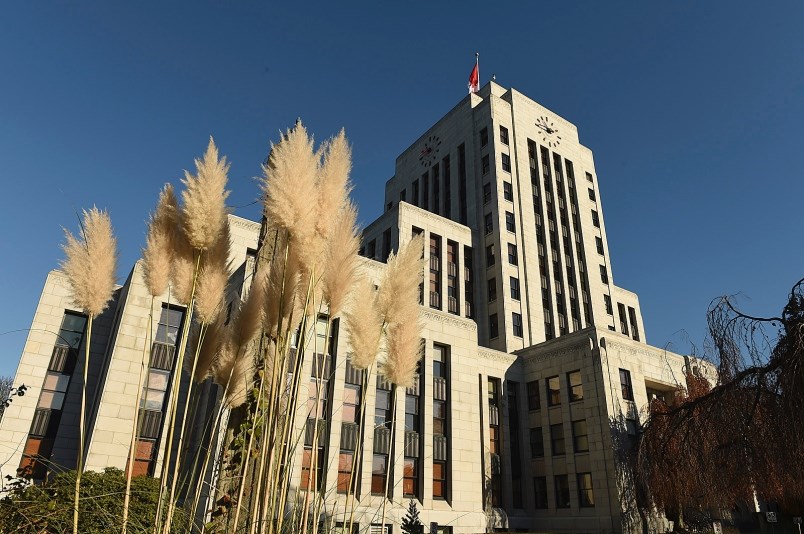But what that plan will mean for the operations of Vancouver’s municipal government, which has been hit hard financially by the pandemic and forced the layoffs of 1,800 union workers, remains unclear.
Mayor Kennedy Stewart told Glacier Media last week that he was to discuss the issue with Health Minister Adrian Dix, saying he wants to know how the city can move to reopen facilities and restart operations “at the same pace as what’s advised by health officials.”
“But I too, like everybody else, have concerns about places that are opening too quickly,” he said.
“We saw what happened in Singapore.”
Early on in the coronavirus pandemic, Singapore was praised as an example of how to prevent widespread transmission of the virus. Now the country is under lockdown after a spike in cases.
Stewart said he was recently briefed by health officials from Singapore, and does not want Â鶹´«Ã½Ó³»and the rest of the province to transgress from flattening the epidemiological curve to requiring a strict lockdown.
 Provincial Health Officer Dr. Bonnie Henry with B.C. Health Minister Adrian Dix. File photo Dan Toulgoet
Provincial Health Officer Dr. Bonnie Henry with B.C. Health Minister Adrian Dix. File photo Dan ToulgoetProvincial Health Officer Dr. Bonnie Henry warned Saturday that B.C. is far from a return to some semblance of normalcy. Henry said it was important to continue regular hand washing, to stay home if ill and to adhere to physical distancing measures.
“So what we will be doing, and the premier will be announcing later this week, is how we’re going to move forward using this.”
Added Henry: “But we will not move forward with opening up different sectors until we’re ready, until we’re sure that they have a plan that is workable, that makes sure we have these precautions and protections in place.”
'Cautionary tale'
Unlike other countries and some provinces, B.C.’s restrictions haven’t been as “draconian,” she said, but cautioned that recent outbreaks at poultry plants in Â鶹´«Ã½Ó³»and Coquitlam provided health officials with “a cautionary tale” about lifting restrictions too soon.
“That tells us that we need to make sure that we have the right safety measures in place in each different area of our economy to make sure that we can all be comforted and understand that we are opening up safely and slowly and methodically,” Henry said.
Â鶹´«Ã½Ó³»city manager Sadhu Johnston said the city continues to be in cost-cutting mode, but with an eye on reopening facilities and restarting programs and services, while simultaneously helping the city’s overall economy from total collapse.
“It’s something we’re thinking about and talking about, and trying to figure out how to be ready,” said Johnston, whose present worry is the $5 million per week loss in the city’s revenue.
That loss, which has come mainly from suspending parking enforcement for a month and closing community centres and other facilities, will mean the city won’t be able to immediately re-start large parts of the organization.
Libraries, for example, are not big money makers for the city, said Johnston, acknowledging they are an important service for citizens but are largely funded by property tax.
“Whereas many of the recreational programs that have been cut would bring in revenue, but the question would be: When are people going to want to participate in those types of programs again?”
The city continues to process building permits and has worked with construction companies to allow projects to continue, including extending hours of operation to keep the industry from collapsing.
The city is also moving ahead with public hearings to ensure projects, including those with social and affordable housing, will not be further delayed by the pandemic.
More than 15,000 businesses, meanwhile, remain temporarily closed.
Sooke's budget is $25 million
If Â鶹´«Ã½Ó³»ranks at the top of B.C. municipalities struggling with finances during the pandemic, then the small city of Sooke on the southern tip of Â鶹´«Ã½Ó³»Island is near or at the bottom.
The municipality has about 50 employees and an operating budget of $25 million, whereas Â鶹´«Ã½Ó³»has roughly 10,000 employees and an operating budget of $1.6 billion.
Â鶹´«Ã½Ó³»has laid off 1,800 union employees and city staff, the mayor and councillors have taken a 10 per cent pay cut. Sooke, which has a population of about 14,500 people, hasn’t had to lay off any of its workers or take pay cuts.
Sooke Mayor Maja Tait, who doubles as president of the Union of B.C. Municipalities, said the city’s operations continue without much effect on finances, noting revenue mainly comes from property taxes and development and licence fees.
“And we do receive some revenue from the View Royal Casino, but we don’t have as many variable revenue sources as larger centres,” Tait said.
Changes for Sooke during the pandemic have been the inability to hold public hearings — although the B.C. government announced May 1 it has allowed local governments to hold hearings electronically — and the number of municipal employees working from home.
“We’ve never had a work-from-home policy, but we are finding that for many employees that’s working very well,” said Tait, noting it could be an option to incorporate into the re-start of city operations.
“Productivity is high, so it’s having us re-think what our space and layout and all of those things will look like, which is a benefit because we’re a growing municipality.”
With the northern part of the province not hit as hard by the coronavirus, the logical conclusion would be municipalities in that region could fully re-start operations sooner than larger cities.
But Tait, in her conversations with other municipal leaders, said she hasn’t heard that’s the case, although she pointed out many municipalities affected by years of wildfires are likely more prepared to reopen.
“In some ways, they have some recent history to draw from on how they’ve transitioned from emergency back to normal,” she said.
Henry and Dix were expected to hold a news conference Monday afternoon to present new information on epidemiological modelling of the virus. As of Saturday, B.C. had 2,171 confirmed cases, with 72 people in hospital.
A total of 114 people have died since the first infected person was announced in B.C. in January.
@Howellings



